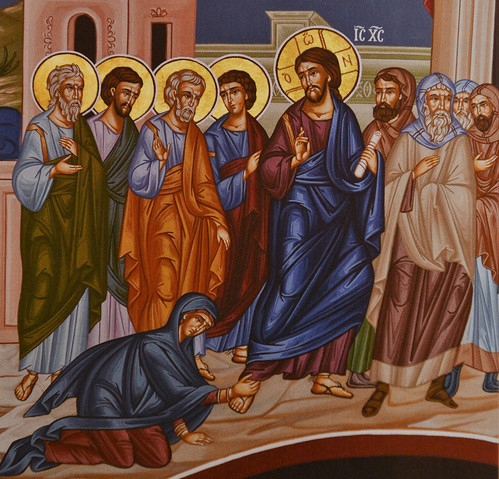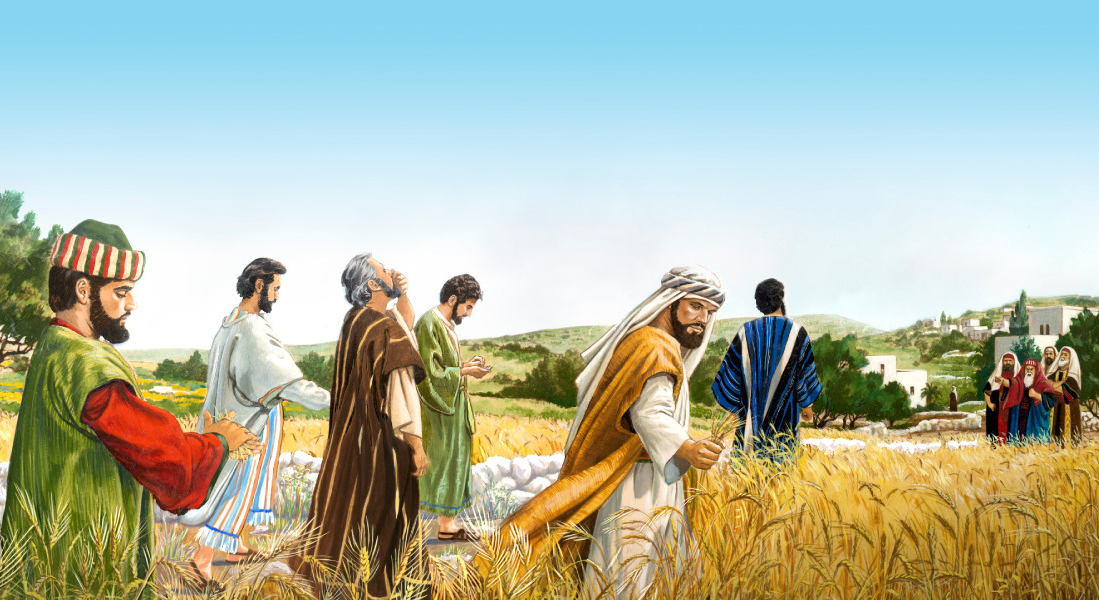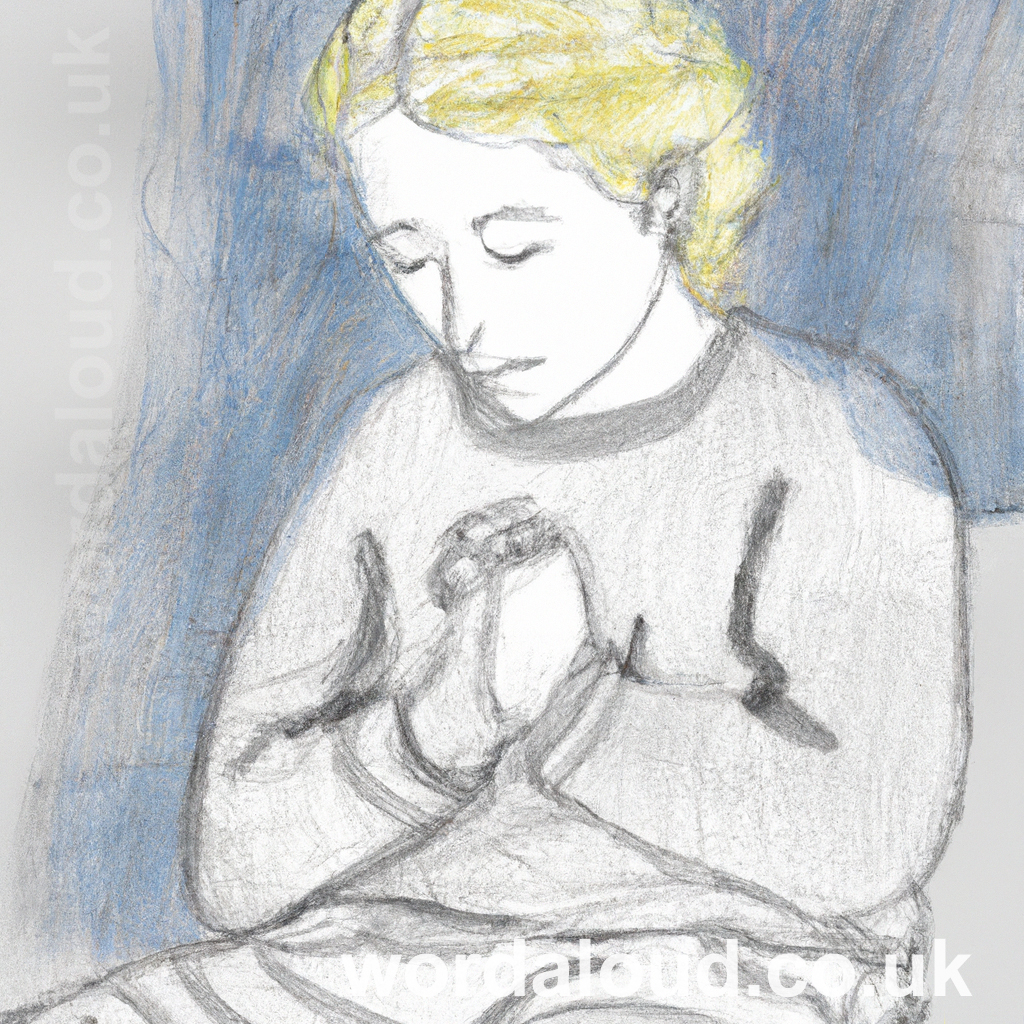Christian Art | Foxes Have Holes | Let The Dead Bury Their Dead
Matthew 8: 18-22 – Week 13 Ordinary Time, Monday (King James Audio Bible KJV, Spoken Word)
18 ¶ Now when Jesus saw great multitudes about him, he gave commandment to depart unto the other side.
19 And a certain scribe came, and said unto him, Master, I will follow thee whithersoever thou goest.
20 And Jesus saith unto him, The foxes have holes, and the birds of the air have nests; but the Son of man hath not where to lay his head.
21 And another of his disciples said unto him, Lord, suffer me first to go and bury my father.
22 But Jesus said unto him, Follow me; and let the dead bury their dead.
The crowds press in around Jesus. Perhaps there is a sense of enough having been done for now in this place, in terms of teaching and the healing miracles of Jesus. Perhaps there is a sense of too much ferment, and a need to leave these thousands upon thousands of people in quiet to reflect upon what they have experienced of Jesus so far. It is time to move, and now there does arise a question of who will follow Jesus and who will stay behind. This may be a figurative moment, in that sometimes there are people who follow Jesus in a great rush of feeling and momentarily; others are concerned to follow Jesus permanently, all their lives.
Jesus warns the first who asks to follow him and be with him that his missionary activity is taxing work, and that he has no place to rest his head. Jesus is so often on the move in the Gospels. Perhaps we are to understand this verse as a lesson for all time; to be with Jesus is always to follow him, always movement and always hard work, always watching.
As we follow Jesus, we make ourselves always available to be with Jesus and at his service. In times of solitude, we are to be spiritually alert. With others, we are to looking out for the good of the community. This is a life of prayer and of good works. It is a whole-hearted giving of ourselves to the calling. Jesus’ mission becomes our own.
This is the way of life. By taking up our cross and following Jesus, we can know that we are richly alive. The challenges of this great journey are in part echoed by Jesus’ calling himself the Son of man, which was the prophet Daniel’s way of speaking of the Messiah, rather than Son of God. In using the words Son of man, Jesus distinguishes himself from visions of worldly power, of the longed for great leader who would lead the Jewish people by conquest to a nation state. The life and happiness given to us by Jesus are of a completely different order than such things.
It may seem strange that Jesus tells the second of his would-be followers that he should come now and not look backwards to bury his father; that he should leave the dead to bury their dead. This is striking language, and implies exclusivity, a clear choice between two options: are we to be the living or the dead? The choice to be with Jesus, and the commitment this entails, is to leave death behind and to be with the living.
‘If Jesus forbade him, it was not to have us neglect the honour due to our parents, but to make us realize that nothing is more important than the things of heaven and that we ought to cleave to these and not put them off even for a little while, though our engagements be ever so indispensable and pressing.’ St John Chrysostom.
Concluding Prayer
Lord God, be the beginnng and end
of all that we do and say.
Prompt our actions with your grace,
and complete them with your all-powerful help.
We make our prayer through our Lord.
![]()
King James Audio Bible | Endnotes
Let The Dead Bury Their Dead
The passage Matthew 8:18-22 is a brief but powerful exchange between Jesus and two individuals who approach Jesus with requests to follow him. In response to each request, Jesus gives a challenging and seemingly harsh response, culminating in the famous saying: ‘Let the dead bury their dead.’ This saying has perplexed and even offended many readers over the years, but when understood in its biblical and historical context reveals a profound truth about the cost of discipleship.
First, let us examine the passage itself. In verses 18-19, a scribe comes to Jesus and says: ‘Master, I will follow thee whithersoever thou goest.’ Jesus responds: ‘The foxes have holes, and the birds of the air have nests; but the Son of man hath not where to lay his head.’ This response may seem cryptic at first, but Jesus is essentially warning the scribe that following Jesus will not be an easy or comfortable path. The Son of Man, a title Jesus often used to refer to himself, is a figure from the book of Daniel who represents a suffering and persecuted servant of God. By referring to himself as the Son of Man, Jesus is identifying with this figure and implying that his followers will face similar trials.
Next, in verses 20-22, another man approaches Jesus and says: ‘Lord, suffer me first to go and bury my father.’ Jesus responds: ‘Follow me; and let the dead bury their dead.’ This response may seem callous or even disrespectful, but Jesus is actually issuing a challenge to the man’s priorities. In Jewish culture, burying one’s parents was a sacred duty and a sign of filial piety. However, Jesus is telling the man that following him takes precedence over even this important duty. The phrase ‘let the dead bury their dead’ is a Hebrew idiom that means ‘let the spiritually dead (i.e., those who are not following Jesus) take care of the physical dead (i.e., the man’s father)’. Jesus is essentially saying that those who are not committed to following him are spiritually dead, and that the man should prioritize his commitment to Jesus over any earthly obligation.
Now, let us examine the broader biblical and historical context of this passage. Throughout the New Testament, Jesus frequently speaks of the cost of discipleship and the trials that his followers will face. In Luke 14:25-33, for example, Jesus tells a large crowd that they must be willing to give up everything they have in order to follow him, including their families, possessions, and even their own lives. This is not an easy or comfortable message, but it is a necessary one. Following Jesus requires a total commitment and a willingness to sacrifice everything else.
Christian theologians have commented on this passage and its meaning. Saint Augustine wrote that ‘the dead in spirit must bury their dead in the flesh, but those who are alive in spirit must follow the Lord’. Saint Augustine interpreted the phrase ‘dead in spirit’ to mean those who are not committed to following Jesus, and the phrase ‘alive in spirit’ to mean those who are. Saint Thomas Aquinas also commented on this passage, writing that ‘our Lord intended by this answer to show that he must not be hindered by any earthly thing’. Aquinas interpreted the man’s request to bury his father as an excuse to delay his commitment to following Jesus, and saw Jesus’ response as a rebuke of this delay.
Saint Ignatius of Loyola wrote in his Spiritual Exercises that ‘we must make ourselves indifferent to all created things, as far as we are allowed by the liberty of our will, and set ourselves only in the divine will’. This echoes Jesus’ call to give up everything else in order to follow him and prioritize our commitment to him above all else.
In the Protestant tradition, John Calvin wrote in his Institutes Of The Christian Religion that ‘we are not our own, but belong to God.’ Calvin saw this as a call to total surrender to God and a willingness to follow him even when it is difficult or uncomfortable.









